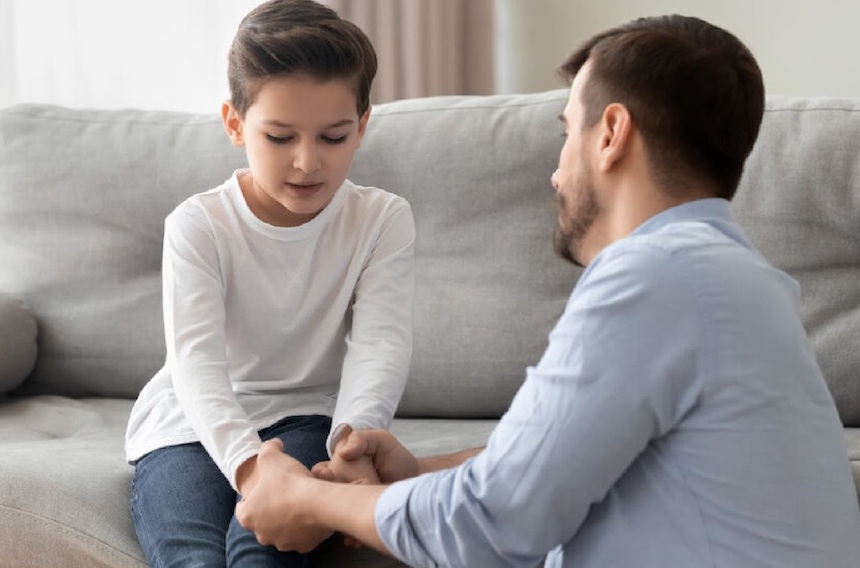
Many parents are concerned about how their divorce will affect their children. The most important thing you can do is keep your children involved in your life, even if you no longer live together. Children are more resilient than adults. They can deal with change better than adults sometimes. However, they do need to maintain a healthy relationship with both parents.
Resolving divorce issues is tough enough for adults, but doing so while parenting children can be even more complicated. Custody, visitation, and child support are complicated enough on their own, but some also unique considerations for parents are separating. These can include deciding how to handle issues like relocation, school enrollment, and more. The following tips guide how parents can work together and communicate effectively to help children adjust after divorce.
Be Honest With Kids
Don’t keep them in the dark. Children want and need to know about your plans for divorce. They may not be able to perceive what all of those plans mean now. However, as they grow older, they will realize the importance of what is happening around them. They need as much information as possible so they can make sense of what is going on around them – even if it is just a feeling – and they need reassurance that you both will be there for them through the changes that lie ahead. Don’t leave them guessing or worrying, or fearing about anything.
As difficult as it may be for you just remember that it is also hard for your children to lose their family structure. Your children need to know about their future living arrangements, school changes, adjustments with friends, family support systems, and any financial changes that will take place because of your separation.
Children need to understand that some adult relationships don’t last forever and that it is okay to move ahead with your life when you no longer love someone or decide that you do not want to live together anymore. It does not mean that you will never see each other again; it just means that you will live separately and raise your children separately until you decide otherwise.
Division of Child Support and Custody After Divorce
When parents separate, they must determine the amount and type of child support and custody each will have. Child support is money paid by a parent to provide for the needs of the child so that the noncustodial parent can focus on the emotional and physical development of the child. Custody refers to the decision-making responsibilities and physical care of a child during and after a divorce.
The custodial parent or primary caregiver typically has responsibility for daily child care decisions such as education, health care, and religious affiliation. Many couples cannot solve all this on their own and often seek the help of family lawyers from North Sydney, who are looking for the best solutions for children and parents.
Preventing Conflict Between Parents Over Their Children’s Contact With the Other Parent
Parental conflict interferes with children’s adjustment as much as the divorce itself. Children should not be used as pawns in divorced parents‘ power struggles; they should remain at the center of their parent’s efforts. Parents can prevent conflict by not discussing issues related to their divorce around their children and avoiding making negative references about the other parent to their children. They should agree on how to handle holidays, birthdays, vacations, and telephone calls with extended family members who live out of town and have each parent approach parenting tasks with an equal level of enthusiasm and commitment.
Talk to the Children About Their Feelings on Divorce
Some children are more affected by divorce than others. They may be younger or have a special relationship with one of their parents. Their age can affect how they cope emotionally. Therefore, it’s always best to ask them how they feel about what is happening. Divorce is never easy, but there are steps you can take to help your children through the transition. By being empathetic, asking them questions, and listening to their feelings, you are taking the first step in ensuring that your family will get through this challenging time together.
Parents need to be able to talk openly with their children about the divorce. That is how children process the situation and come to terms with it. They need to be able to express their emotions, ask questions and receive answers that are honest, open, and age-appropriate. As well as helping children grasp what’s happening, it’s equally important that they feel protected after divorce. If there are concerns about domestic abuse or other factors, help them find support. Kids don’t usually act out because of their parent’s divorce. However, if they feel danger or insecurity, they may act out to get the attention they need.
Although divorce is difficult, it does not have to be traumatic for the child, if the parents are well placed and understand that they should remain attached to the child and still maintain a healthy relationship.
- Divorce Advice for Families With Children - October 21, 2021
- Everything You Need To Know About Wall Decoration - September 8, 2021
- How To Keep Your Kids Busy During Lockdown - March 10, 2021






